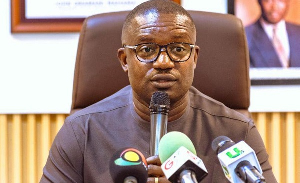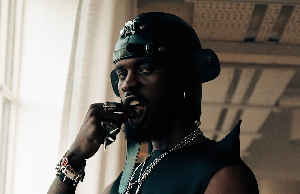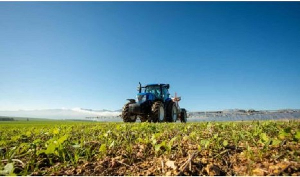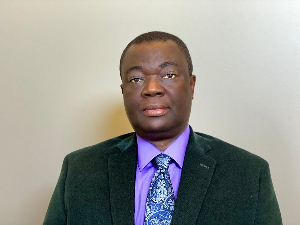Security Analyst Adib Saani has urged President Nana Addo Dankwa Akufo-Addo to prioritize the security of Members of Parliament (MPs) as he begins his second term as President, explaining that MPs ought to be better protected given the hung nature of the Eighth Parliament and the fact that some of the MPs won through very acrimonious contests.
In a statement giving national security recommendations to the newly-sworn in President, Mr Saani also advised that Albert Kan Dapaah, who was National Security Minister in the President’s first term must not be reappointed since he failed to deliver.
Among others, Mr Saani added that journalists must also be better protected by the state. He noted that Ghana’s dwindling rankings on the World Press Freedom Index and threats on the lives of journalists must be taken seriously.
Full recommendations below:
Nana’s Second Term; National Security Expectations
As President-elect, HE Nana Akufo-Addo is inaugurated for a second term, it is imperative to take a step back to reflect on the myriad of security challenges the country faces and perhaps, proffer solutions.
I have the following recommendations;
1. Kan Dapaah must not be re-appointed: It is informative to note that, for the President-elect to succeed, attention has to be paid to security management reforms to achieve efficiencies in streamlining national security business practices. In short, Nana must not appoint Kan Dapaah as National Security Minister. His indifference, inefficiency, and incompetence exhibited especially with specificity to Ayawaso West Wuogon election violence and Western Togoland say it all. To ensure relevance, public legitimacy, ownership, and sustainability, a more competent, committed person with extensive hands-on experience should be appointed.
2. Implement Security and Intelligence Agencies Act 1030 (2020): Credence must be given to the development of a National Security Strategy that will help pre-empt emerging security threats against the ad-hoc nature of our approach to security issues.
3. Modernize National Security approach to counter new threats: The terrorism threat against Ghana is real and all appropriate steps have to be taken to counter it. The Government must spend more on modern, agile security. To advance the digitalization of crime and investigation, the Government must invest in the construction and equipping of more crime labs to facilitate investigations.
4. Implementation of Cyber Security Policy: Government must build institutional capacity (both infrastructure and human resource) and promote education in tackling the cybersecurity threat.
5. Make the security of MPs a priority: The nearly hung nature of Ghana’s Parliament makes the stakes high. MPs must hence, be better protected especially those that emerged victorious from highly contentious races.
6. Protection of Journalists: Ghana continues to negatively slither in the World Press Freedom Index Ranking. The recent threat against some journalists in the country is quite troubling. Protecting the media is protecting our democracy.
7. Reduce Government Size: The size of Government promotes transactional politics hinged on duplicity and other forms of corrupt practices. We tend to overspend on allowances and personal overheads rather than on training and equipment. These unnecessary overheads and duplicative support staff promote exploitation that invariably poses a huge human insecurity nightmare.
8. Revamp Human Security Department at the National Security Secretariat: Human Security is a holistic concept that encompasses human rights, good governance, access to education and healthcare and ensures that each individual has opportunities and choices to fulfil his or her own potential. Integrating a human security approach in the National Security Strategy can help identify and address cross-cutting socio-economic challenges and prevent them from spiralling into conflict.
9. Recruit more Police Officers: Ghana’s current police-civilian ratio is a sharp contrast to the UN standards of 1 Police Officer to 500 citizens. More officers must be recruited to offset the deficit.
10. Institute a Police training policy that should be strictly implemented: The training should focus on countering emerging threats and also building police-civil relations.
11. Justice: The justice system is a critical link in the criminal justice chain, and therefore directly contributes to strengthening public order and safety. The justice system contributes to maintaining a peaceful internal environment through its role as a mechanism for diffusing and managing conflict. Families of the 6 Ghanaians killed during recent election-related violence deserve justice. It must not be denied, it must not be delayed.
By making smart, strategic decisions about Ghana’s security, the Government can maintain the highest level of preparedness and power of deterrence whilst also protecting the public purse.
Adib Saani
Security Analyst/Executive Director
Centre for Human Security and Peace Building
General News of Saturday, 9 January 2021
Source: mynewsgh.com













